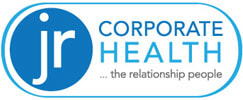|
I was very interested to read that the Mental Health Foundation has chosen Nature as the theme for Mental Health Awareness Week 2021. As a dual-registered health professional, whose main concern centres around health of the whole person, I can well see why. We are increasingly reminded of the positive impact that nature can have on our mental health; reminders that have been particularly helpful during this time of pandemic.
This year has been a hard one for all of us, but for some more than others. We have lived through a period of enforced isolation in our communities that has been unprecedented in modern times and it seems that the impact of this continues to unfold on a daily basis. I see higher levels of anxiety, stress and depression in my nurse clinics and in my therapy room: from health professionals across the various disciplines, young adults working in isolation at home, those who have struggled to recover from Covid-19 and those who are simply unable to spend time with loved ones. I have heard many stories from people who have struggled to cope emotionally or physically or both. What many of these people share is a strong desire to retreat from the world, confining themselves to the home, withdrawing from others and from those things that keep us feeling good about life. I believe that as human beings we were never meant to exist in a state of isolation. We are wired to respond to stimulus, whether that is the voice of another human being, the crashing of waves, a beautiful sunset, or the dawn chorus; if we listen carefully, we have the potential to be consumed by the beauty of it all. The problem is that when we are reduced in our capacity to respond from a position of strength, we find it difficult to motivate ourselves to engage with the simplest of things and we get caught up in a viscous cycle of isolation that is difficult to break. So then what? Well, I think that the first step toward healing and wholeness is to acknowledge that there is a problem. So many people I speak to tell me that they struggle to acknowledge a problem, because a problem is a weakness, weakness leads to vulnerability and vulnerability results in a lack of control. But what about if we turn that on its head? I acknowledge that I have a problem, I feel powerless to address it, I feel vulnerable and in order to address it I need to reach out and draw some support to enable me to regain some sense of power and control. Sounds simple, doesn’t it? But, of course, it’s often not as easy as that. If you know someone who is struggling to the point where they are unable to function and are at risk of serious harm, then I would encourage you, with their permission where possible, to seek immediate and appropriate professional help on their behalf. For those not at risk, gentle encouragement to seek some support may be all that is needed to stimulate the person into action. But what about the rest of us? I don’t know many people who haven’t been impacted to some degree by what has happened over this past year. It’s been a time for reflection for many; a time to consider how we live in the world, a time to consider how we function as individuals, how we relate to others and how we might grow and develop through the remainder of this year and beyond. In order to do this, it may well be helpful to consider how we care for our mind, our bodies and that deeper emotional side of self, sometimes referred to as our “spiritual self”. Let’s call it a full MOT and let’s face it, if it is essential to have a full MOT in order for our car to function well, shouldn’t we apply the same principle to ourselves? How you address your health and wellbeing is for you to decide, but it may be worth considering the following: How is my physical health, including my diet and my lifestyle choices including smoking, drinking and level of physical activity? How are my relationships; are they healthy, equal, life-giving? How is my home-life; is it secure, physically and financially? How is my work; does it sustain me, am I able to contribute well, do I feel valued and supported? If you find yourself questioning any of these things and if you are struggling in any way, then you may want to consider drawing some objective support in an attempt to restore some balance. The internet is a great starting point, although I urge caution around where you draw information from. Whilst NHS services might be particularly stretched at the moment, their website is a reputable source of support and can be accessed at: www.nhs.uk If you are looking to access some counselling support independently, then do ensure that you search via a professional organisation and you might wish to explore: www.bacp.co.uk for therapists in your area. I wish you well on your journey. Jan
0 Comments
|
BlogJR Corporate Health blogs cover topics such as management support, supervision, psychological support, critical incident support and wellbeing in the workplace. Archives
July 2021
Categories
All
|
JR Corporate HealthConnectt |
Services |
Legal Info |
© Copyright 2023 JR Corporate Health Limited | JR Corporate Health Limited is registered in England, number 11264109, and whose registered office is Bow Cottage, Selworthy Green, Selworthy, Minehead, Somerset TA24 8TP.
Email [email protected] Mobile 07785 977771
Website Design & Development by Creative Remedy
Email [email protected] Mobile 07785 977771
Website Design & Development by Creative Remedy

 RSS Feed
RSS Feed